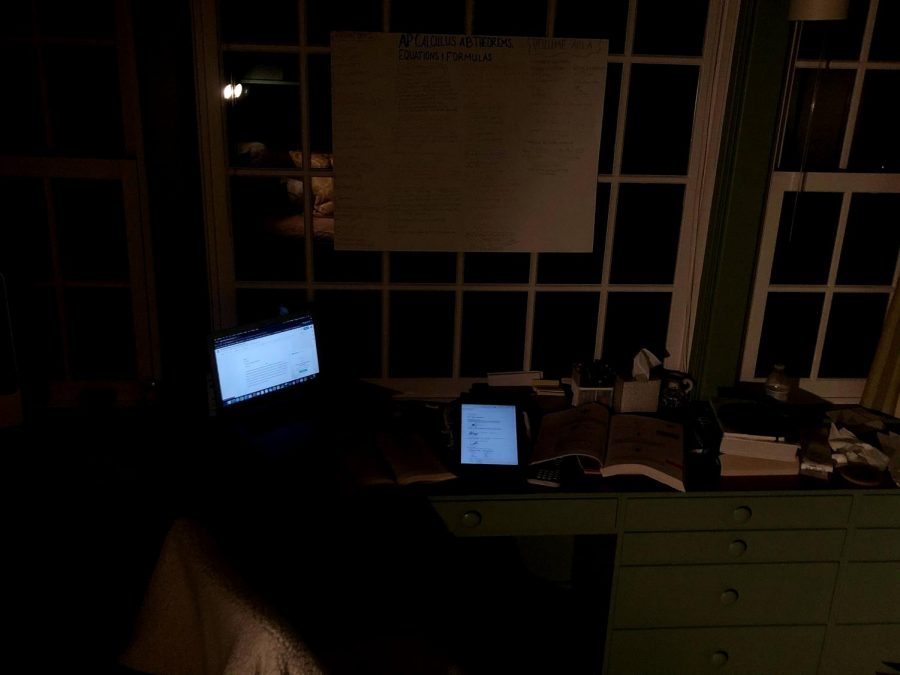Hitting snooze on stress and late-night assignments
Netflix’s “Headspace: Guide to Sleep” addresses serious issues regarding student’s stress levels and sleep cycles
May 27, 2021
Every student has experienced the painful exhaustion of a late-night study session at least once in their lives, whether it’s cramming for a final or a weekly all-nighter. Balancing high-achieving classes, SAT prep, college preparations, a healthy sleep cycle, and everything outside of school is an overwhelming and nearly impossible task. Unfortunately for many students, sleep is the first luxury we can’t afford to have.
On April 28 Netflix partnered with Headspace, an online corporation focused on mental health and meditation, and released a docuseries called Headspace: Guide to Sleep. Each episode focuses on a different aspect of improving sleep quality and ends with wind-down exercises to use before bed. These topics include, but aren’t limited to: using technology before bed, letting go of stress, and perfecting a personal sleep rhythm. As the series progressed, two topics stood out particularly for students struggling with the balance of sleep and school.
As children growing up in the age of handheld devices, we have become accustomed to screens in nearly every aspect of our lives. Nearly all of our schoolwork consists of us staring at a screen and most of our entertainment stems from some sort of technology. According to the episode “Putting Your Phone to Sleep,” the use of technology before bed has severely affected our Circadian rhythm. This is the cycle our bodies are naturally accustomed to, which tells us when it’s time to eat and sleep routine times throughout the day. Typically, light indicates to our brain that it’s time to be awake and darkness indicates it is time to sleep. However, the use of screens, whether it’s phones, TVs, or any school device, has created a flux in this rhythm. The blue light emitted from whatever screen we use before bed slows the production of melatonin and gives us an energy rush instead of putting our brains to sleep. This is a major issue for students, as we spend the majority of our day on screens. While it might be easy for parents and teachers to tell us to put our phones away and we’ll get more sleep, the real villain is the amount of time we spend on our iPads and laptops doing work. We either sacrifice our sleep and get our assignments done, or we sacrifice our assignments for more sleep. Either way, students are put in an impossible situation during the nine months a year we spend toiling away over our schoolwork.
An ideal situation that many students dream of is to finish every assignment by 8 o’clock, spend the next few hours relaxing, and get over seven hours of sleep. However, relaxing is not so easy for some students. Another episode of Headspace: Guide to Sleep that is important for students to consider is “Letting Go of Stress”. Especially during the last month of school amid finals, AP Exams, and Keystones, stress itself can be the ultimate sleep depriver. The phrase “my brain won’t shut off” is something many of us know all too well. Even if all our assignments are done at a reasonable hour and we have the opportunity to get a good night’s sleep, the stress of everything in our lives prevents that from happening. According to Headspace, this is very common for students and adults alike. However, it can have negative effects on both physical and mental health. One of the best ways to combat a perpetual feeling of anxiousness and worry is mediation. While meditating once a day can be beneficial, periodic medication multiple times throughout the day has proven to be the most effective in falling asleep easily at night. Periodic meditation trains the brain to be peaceful on its own over time, eventually giving it the ability to push away stressful thoughts and have a restful sleep.
Netflix’s Headspace: Guide to Health is an important topic that extends beyond a short docuseries. The issues addressed in each episode are problems most students deal with every day with the amount of work and stress in their lives. It is greatly beneficial for students to watch this series and consider actions towards better sleep and healthier mental wellbeing, as the threats caused by sleep deprivation can negatively affect mental health and the very grades that sleep is deprived over.









